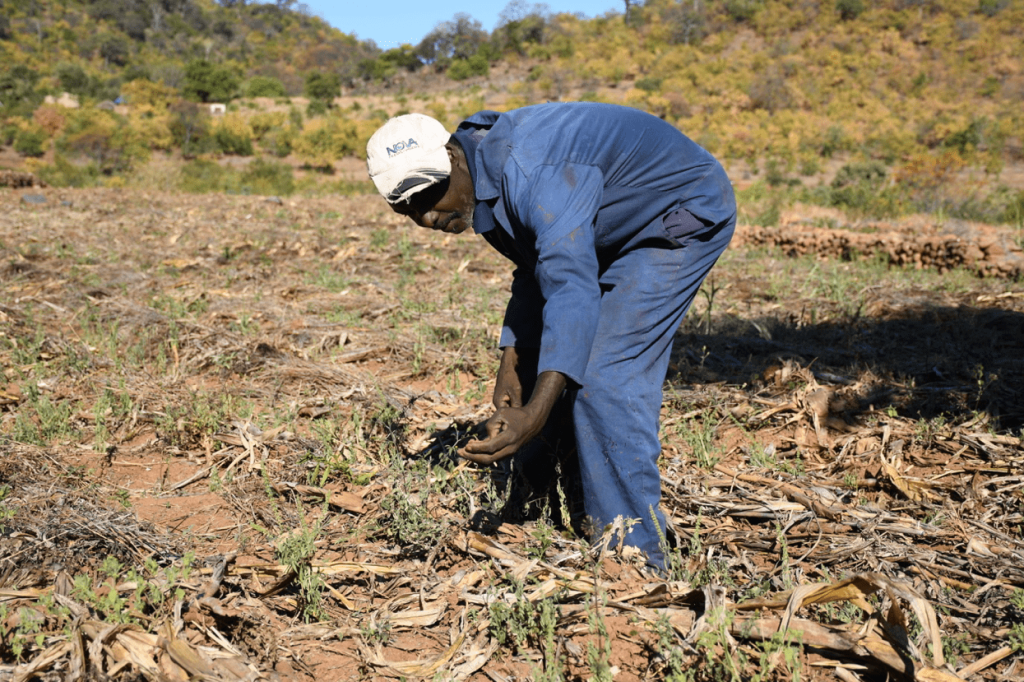
Sherry Manjonjori (55) is a small-scale farmer from Chimanimani district who has turned a previously unproductive 200 square meter piece of land into a thriving source of livelihood for her family through Agroecology.
Sherry says she managed to achieve this through working with PELUM Zimbabwe Member, Towards Sustainable Use of Resources Organisation (TSURO) Trust. TSURO Trust trained her and other farmers in making and utilising biofertilisers which promote rejuvenation of soil fertility through natural processes that restore nutrients into the soil.
“Through TSURO Trust, I managed to get trained on biofertilizer making which enabled me to make biofertilisers which I have been applying to my soil for the past three years,” says Sherry.
Sherry says applying biofertilisers on the poor soils has greatly enhanced her harvest.
“The soil in our gardens used to be very unproductive as it lacked critical nutrients. We used to do very limited agriculture because our soils were sandy, salty and rocky which worsened because of climate change. I used to get very little maize in my garden. After I started applying biofertiliser, I started to get better maize harvests,” says Sherry.
Seeing the improvement in her maize harvests, Sherry says she then diversified her crops to include vegetables and legumes, enhancing her family’s nutrition.
“Because of increased soil fertility, I then started experimenting with other vegetables and legumes which previously performed very poorly and managed to succeed,” says Sherry.
Sherry is just one of many farmers who have successfully rejuvenated the fertility of their soils using Agroecology. Donewell Madondo (51) has lived in Chimanimani since 1994 and like Sherry, he also struggled with unproductive land when he first moved to Chimanimani.
“When I moved to this place, the land was barren. I was wise enough to start working with TSURO Trust which trained me on agroecology. As a result of my interventions throughout the years, I am able to produce enough food for my family and even surplus which I sell to supplement my family’s financial needs. I do not worry about the effects of climate change as they are minimal to my crops,” says Donewell.
Sithulekile Dube (53) an Agricultural Technical Extension (AGRITEX) Officer says more farmers should adopt Agroecology in order to ensure enhanced and sustainable soil fertility in the face of climate change.
“Being an AGRITEX officer helped me to better understand the environments that farmers work in. Climate change has not been lenient on farmers who have struggled with soil fertility and unproductive soils. I encourage more farmers to take up agroecology in order to boost sustainable production,” she says.







